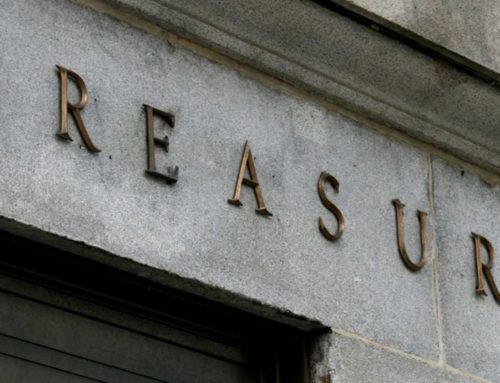For years now, Congress has focused public attention on our nation’s fiscal woes. From passing the Budget Control Act in 2011 to the showdowns over the fiscal year 2014 appropriations (and other things) that lead to the government shutdown last year, Congress has been loudly proclaiming that we need to change the way we do business or risk fiscal disaster.
So, what is the first bill passed in the wake of the recent budget deal? A thrifty, transparent attempt to solve problems in a serious and fiscally responsible way? Nope, it was a trillion dollar farm bill full of corporate subsidies that will increase the deficit. Like shepherds guarding their flock, for nearly three years the chairmen and ranking members of the House and Senate Agriculture Committees opposed nearly every common sense effort to rein in spending on profitable agribusinesses and proved that Congress doesn’t really want to change it ways. Ordinary taxpayers got fleeced while special interests got rewarded.
I’ve written about the farm bill more times than I can count, so you may already know that theAgricultural Act of 2014 is the product of an opaque, byzantine, soap-opera worthy series of efforts by the leaders of the Agriculture Committees to jam a trillion dollar bill into any legislative vehicle they could. First, they tried to shove a backroom-written farm bill into the so-called Super Committee process on deficit reduction, and when the Super Committee failed, they tried to convince us their already-crafted trillion-dollar bill was an “emergency” response to the 2012 drought. Then they tried to sell their paltry (and almost certainly fake) projected savings as a part of the fiscal cliff deal. And even when the bills did make it to the House and Senate floors, the vast majority of amendments trying to improve the bill were kept off the floor of Congress. Just 15 out of the 259 submitted were even allowed a vote in the Senate, and no amendments were allowed in the final House bill.
While the leaders of the Agriculture Committee keep touting the “savings” achieved by this bill, in fact the bill is a great example of old-fashioned Congressional binging. True, the new law does eliminate direct payments, a wasteful program that sent out checks no matter what, but it replaces it with three new entitlement programs designed to send checks for “shallow” (their words, not ours) dips in income. The program that sounded bad (and was) – the counter-cyclical system of setting minimum prices for crops – is eliminated and replaced with … wait for it … a program of government-set minimum (but much higher than before) prices called “Price Loss Coverage.” And instead of new crop insurance policies being vetted through the U.S. Department of Agriculture, as has historically been required, Congress instead caved to special interests by mandating numerous new policies whether or not they are in taxpayers’ best interest. Among Congress’ new pet projects are crop insurance subsidies for everything from catfish and cotton to peanuts, pennycress, swine and sugarcane.
There are so many examples of bad policy making in the farm bill, I can’t list them all. Floor amendments that added to the cost of the bill — for example, tacking on crop insurance policies for business disruptions in the poultry industry, a market study for U.S. Atlantic Spiny Dogfish and new grants for the promotion of maple syrup — made it into the final legislation. Cost-savings and good government amendments that would put modest caps on the amount of taxpayer subsidies paid to agribusinesses, repeal the Sheep Industry Improvement Center, increase transparency and the public’s understanding of new taxpayer subsidized crop insurance policies, and require a new Government Accountability Office report on crop insurance fraud were all scrapped.
Last but not least, a requirement that lawmakers and cabinet secretaries publicly disclose their crop insurance subsidies was abandoned as well. When given the choice between bowing to special interests or fighting for taxpayers, the Agriculture Committee leaders said “no” to no one except those wanting to increase transparency in arcane subsidy programs or better yet, save taxpayer dollars.
At Taxpayers for Common Sense, we wish President Obama had followed his own fiscal year 2014 budget priorities and vetoed this expensive, status quo piece of legislation. But instead, he took a trip to Michigan to sign it in the backyard of one of the Agriculture Committee chairmen. Taxpayers deserve a more cost-effective, accountable, responsive and transparent farm safety net, not yet another farm bill that spares the sacred cows by shearing taxpayers. Stay tuned for the next farm bill, in five years. Let’s hope sanity is restored between now and then.









